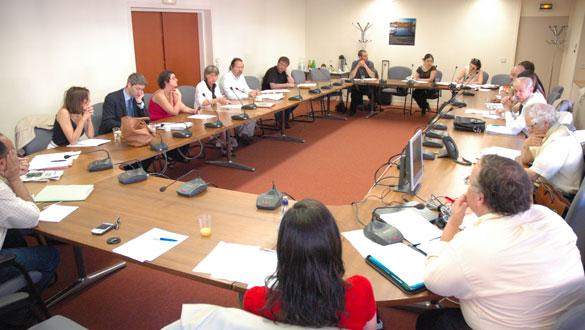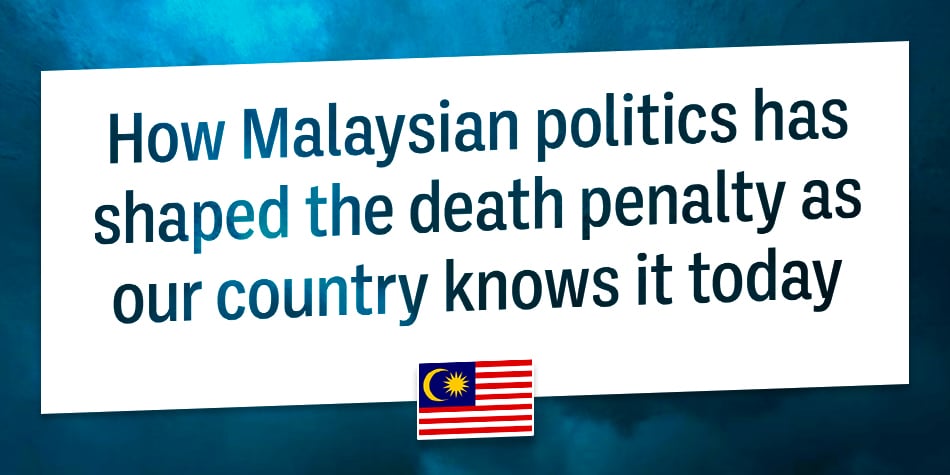Joint Italian-Congolese effort against capital punishment
Advocacy
The Italian NGO, Hands Off Cain, travelled to Kinshasa between June 11-14 to raise awareness about the abolition of the death penalty among the Democratic Republic of Congo’s politicians and journalists.
A full day of debates at the house of parliament gave Congolese representatives an opportunity to reaffirm that their country was on the road to abolition and that a moratorium on executions would remain in place until the death penalty is finally repealed.
The Italian senate’s vice-president and former EU Commissioner Emma Bonino called on the Congolese to adopt a “new method” bringing together the parliament, the government and civil society to “move from a de facto moratorium towards a legal moratorium and then to abolition”.
The Democratic Republic of Congo has been observing a moratorium on executions as president Joseph Kabila systematically leaves pardon requests from death row inmates unanswered, which prevents their execution.
Conflicting interpretations of the 2006 constitution have emerged as the text enshrines the “right to life” but does not formally abolish the death penalty.
“In our opinion, our country is part of the abolitionist movement”, said human rights minister Upio Kakura Wapol during the conference organized by Hands Off Cain. He cited the constitution and recent legislation on sexual violence, which removed the death penalty for such crimes.
“Responsible abolition”
However, justice minister Luzolo Bambi warned that “responsible abolition” could only happen once the country’s prisons, which are in an “advanced state of disrepair”, are fit to offer alternative punishment. Watch his arguments in the video below.
Liévin Ngondji, a long-time Congolese abolitionist and founding member of the World Coalition, also represented the Congolese and Great Lakes regional coalitions. In his reaction to the justice minister’s speech, he encouraged him to go further: “The minister is referring to the position expressed in a letter to the UN secretary general in 1999. Since then, the ministry of justice suspended the moratorium in 2002 and people were killed as late as 2003! There is no such thing as responsible abolition, there is only abolition”, Ngondji said.
The ministers were followed by abolitionist parliamentarians from both countries (watch extracts from their speeches below).
Radical Party MP and Hands Off Cain treasurer Elisabetta Zamparutti detailed her organization’s twin aims – to convince both political leaders and public opinion, through the media. She deemed the situation “ripe” for a decisive push in favour of abolition, because of the decreasing number of executions in Africa in general, and in DRC in particular, in recent years.
Congolese MP Nyabirungu Mwene Songa and Senator Léonard She Okitundu, who have put forward bills to abolish the death penalty, agreed. Prof Nyabirungu, also a law lecturer, recommended an “accelerated movement” towards abolition while taking into account public opinion. In that respect, he added that everyone should feel concerned when it comes to the death penalty: “Even law-abiding citizens can be the victims of a miscarriage of justice”, he said.
M. Okitundu said that “the constitution is abolitionist” and that all that was left to do was to bring penal law in line with it. In the short term, he asked the government to formalize the moratorium on executions legally and to support upcoming UN resolutions on that issue.
Three days of training for 40 journalists
Following the parliamentary conference, Hands Off Cain and the National Union of Congolese Media organized a three-day workshop on abolition for around 40 Congolese journalists. The Italian government funded the seminar with support from Italy’s state television RAI.
Oliviero Toscani, an Italian photographer and advertiser famous for his Benetton ad campaigns including the “We, on death row” series on US death row inmates, shared his experience of abolitionist media activism with the participants.
Communication trainers also stepped in to help journalists understand the mental processes that lead people to value certain concepts such as the right to life. They then introduced them to techniques that favour the emergence of such attitudes among the public, including writing methods and keywords.
The participants welcomed the abolitionist message: “As soon as tomorrow, you will hear about it on Kinshasa’s airwaves!”, one of them said. Those journalists who cover death penalty issues on a regular basis, especially court reporters, decided to form a network to monitor the progress of abolition collectively and exchange information on this question.
However, they insisted that they would need additional resources to put together a formal abolitionist campaign as suggested by Hands Off Cain. “Writing slogans and creating materials would need a more developed partnership with our publishers”, several participants said.







